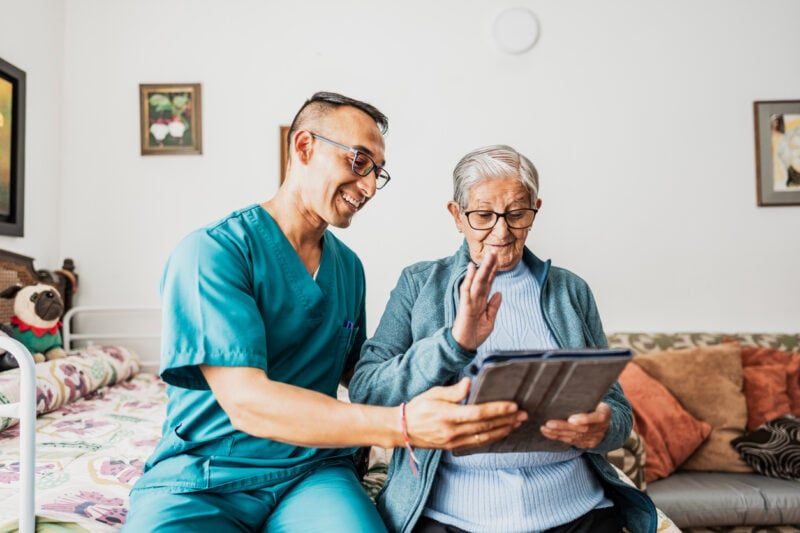Mental health care needs to be accessible to people of all races, cultures, genders, religions, and more. We must acknowledge the different mental health needs of every group regardless of an individual’s sexual orientation, disability status, gender identity, or background of any kind; people are entitled to receive care. We must take all these factors into account when we talk about mental health. Here are some reasons that inclusion is important in mental health.
What is inclusive mental health?

Before getting into why inclusion is important, it’s essential to identify what the term means. Inclusive mental health urges us to understand the communities being treated. As a therapist, It’s crucial to read up on the population that you are serving so that you can appropriately provide mental health care to that individual. Providers should never assume that they know a person’s experience. Instead of making assumptions, it’s okay to ask the client if they want to talk about their unique perspective. People come from all different backgrounds when they seek therapy. Listening is a critical part of the therapeutic process, and that is relevant when it comes to cultural matters. If you’re uncertain about a topic, you can ask for suggestions for articles to read from colleagues or a local organization that caters to the community you’re serving. That way, as a therapist, you can be the best supportive provider to your clients. If you’re looking for helpful articles to read about inclusive mental health care, check out this section of BetterHelp articles on the topic. Various marginalized communities highly benefit from inclusion-based mental health. Here are some examples and what issues they’re facing in their communities.
LGBTQ+ therapy supports inclusion
LGBTQ+ therapy is an excellent resource for the queer community. LGBTQ+ stands for lesbian, gay, bisexual, transgender, and questioning/queer. Individuals in the LGBTQ+ community face unique challenges. There are stigmas that show up in healthcare for people who are in the LGBTQ+ community. Medical providers often don’t understand what a person experiences in the queer community and can intentionally or unintentionally say harmful things to individuals. When these stigmatizing or discriminatory statements are made, they can hurt or cause lasting emotional damage. There is a strong need for education amongst mental health providers to understand the struggles that people in the queer community face. Some of which include harassment, sexual assault, bullying, substance abuse issues, refusal of medical care, and more. Someone in the queer community can benefit from seeing a therapist who is educated in these issues and can be a supportive, supportive ally and therapeutic provider.
BIPOC therapy
BIPOC stands for Black Indigenous People of Color. This group of individuals has faced significant systematic racial injustices. Therefore people in the BIPOC community must have access to inclusive mental health care. These issues include dehumanization, systematic racism, oppression, violence, assault, police brutality, and trauma. Therapists treating people in the BIPOC community need to be aware of the extent of these individuals’ trauma. Another obstacle about treating people in the BIPOC Community is that many individuals are (understandably) mistrust the United States medical system because of past trauma. Many of them have been discriminated against or refused care. Therefore, if you’re a therapist treating somebody in the community, it’s crucial to be sensitive to their trauma and potential medical abuse. That way, you can make your client feel understood and safe in your care. Building a trusting therapist/client relationship can take time, but a big part of it means validating the individual’s life experiences and being empathetic toward them.
How can we encourage inclusive mental health?
One of the best ways to encourage inclusive mental healthcare is by continuing to learn about different groups. Whether you’re a therapist or a patient, never stop learning. If you don’t understand something about a person’s background, ask respectfully. If you’re coming from a genuine place, that’s what matters. You can always let the person know that they don’t have to answer any questions that make them feel uncomfortable. You can also let them know that you intend to better understand them. In turn, you can share information about where you come from and your specific mental health challenges that can help other people.
As a patient – if you feel misunderstood, make sure that you speak up in therapy. Never let a mental health provider talk down to you because of your background. You need to feel safe and secure in a therapy relationship.
As a therapist – it’s crucial to be respectful of your client’s identity. If you’re unfamiliar with where they come from or the group they identify with, and you want to learn more, make sure to read up on their background. Don’t be afraid to ask questions as long as they are without judgment.
Pursue therapy if you need it
No matter where you come from or who you are, you have the right to good mental health care. If you’re struggling with anxiety, depression, trauma, or other mental health issues, a therapist is there for you. You can find someone who is willing to take the time to get to know your unique challenges and who you are.

Photo Credit: iStock
The post Inclusive Mental Health Means Embracing Diversity appeared first on The Good Men Project.
Original Article










